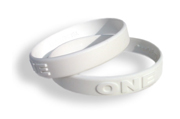
I'm reading The Sunflower, by Simon Wiesenthal. It is a fascinating discussion about the concept of forgiveness, written by Wiesenthal some fifteen years after the holocaust. I am truly amazed by this book for its depth of conversation about such an important topic. I read it in several sittings because it is so deep.
The story recounts Wiesenthal's experience with a Nazi soldier who asks for forgiveness for a murder of another person. Wiesenthal remained silent and the officer died the next day. But what was interesting is that Wiesenthal was not able to let it go. The question haunted him, and thus lead to the book. About forty philosophers, poets, rabbis and scholars contemplate his question. Different faiths are present in this conversation, Judaism, Christian, Buddhist, and Atheist.
As a Christian I wrestle with this question deeply. My wounds sometimes resound in my life in a way that shouts the incompleteness of my soul. I wish to be rid of these infirmities. They seem to be a weight that my heart cannot let go of. But when I do let go, the joy in my heart affirms to me that forgiveness is the right path.
The book presents two obvious differences in the Jewish and Christian faiths. The Jewish scholars value justice and morality and are thus inclined not to forgive, for many different reasons. The Christians and the Buddhists recount Jesus' commandment and are inclined to forgive. What I was left with were more questions. I kept screaming to myself, "But why could Wiesenthal not find resolution?"
What I took away from this reading was an awareness and affirmation that we are designed for love. Wiesenthal never walked away complete. It seemed like a divine appointment for Wiesenthal. Is it possible that Wiesenthal was wrestling with his own heart desire for completeness, which was found in the forgiveness?
Which lead me to other questions. Isn't the greatest act of our humanity, or expression of our soul, the response of rescuing the souls of those lost and revealing to them their own humanity, their worth, and their dignity? The soldier was this emobidment. Isn't forgiveness one of the defining vehicles for this rescue, where love is at its most present? Isn't the human soul's greatest work to love, and forgiveness is that love in its strongest form.
I felt deep sorrow for those who were involved in the holocaust, Jew, Nazi, bystander. What seems apparent is the damage to every soul involved, as evidenced by all parties in the book. We were not meant for atrocities of any kind. May they all find forgiveness.


No comments:
Post a Comment